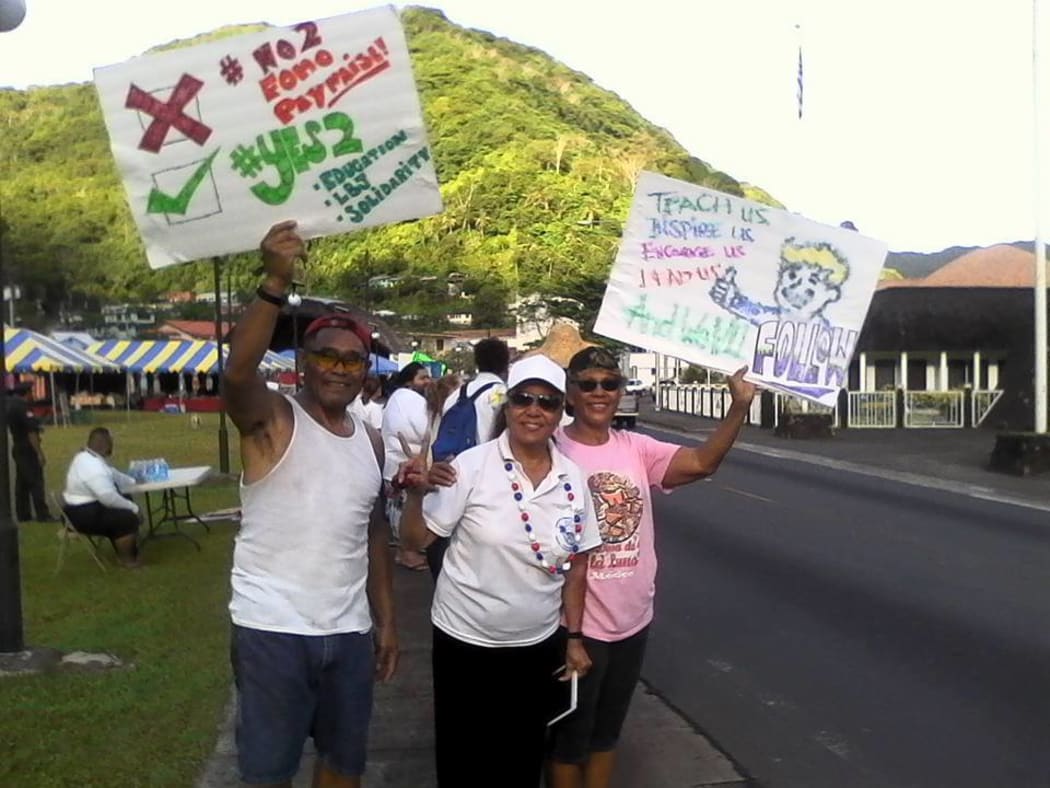A new study has found large wage gaps between expatriate and local staff in developing countries reduces the effectiveness of aid delivery.

Demonstrators in American Samoa arguing for fairer pay Photo: United Citizens of American Samoa
The report said some Pacific Island countries had taken to calling the dual salary system 'economic apartheid', with the ratio of expat to local salaries ranging from 2:1 to 10:1 for staff with similar qualifications.
A coordinator for project, called Are Development Discrepancies Undermining Performance, Stuart Carr, said the disparities created significant feelings of workplace injustice.
Stuart Carr said the phenomenon was also a factor in the brain drain which sees highly qualified locals migrating overseas for better pay and benefits.
"Put yourself in a position of working alongside someone with similar qualifications and experience and you are meant to be collaborating in teams and you find out that your colleague who has the same qualifications and experience is either getting ten times more or ten times less than yourself. And in either case I think most people would find it disrupting to team work and harmony and collaboration."

